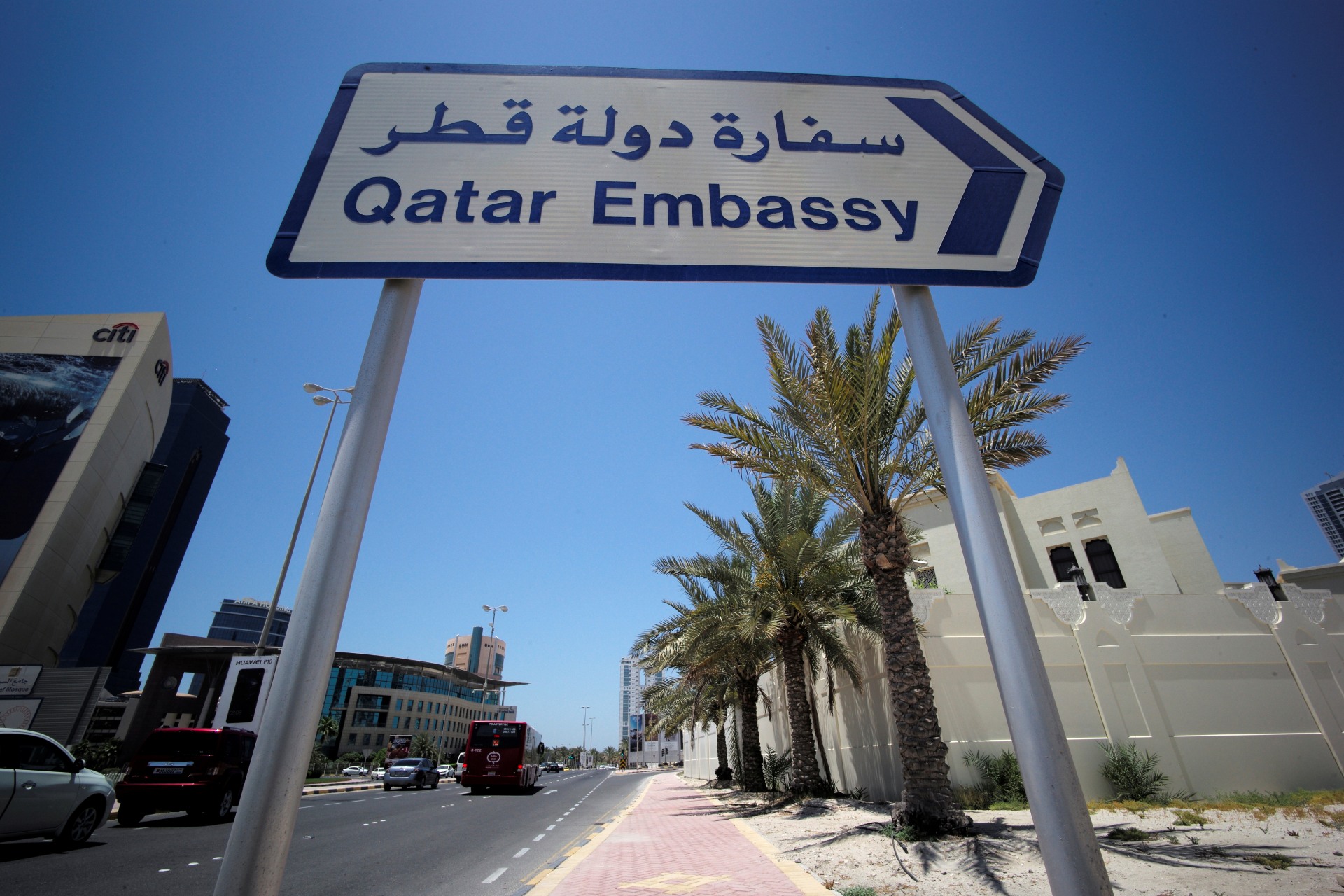Geopolitical Information Blockades: A New Norm?
The information blockade on Qatar is an example of states increasingly using internet access policies as a tool against foreign adversaries—and being more brazen about it than they have in the past.

By experts and staff
- Published
By
- Guest Blogger for Micah Zenko
Jennifer Wilson is a research associate for national security at the Council on Foreign Relations.
This week, the Saudi-led blockade on Qatar will reach its second month. In June, Bahrain, Egypt, Saudi Arabia, and the United Arab Emirates (UAE) restricted travel to and from Qatar by air, land, and sea and cut diplomatic ties because of accusations of support for terrorism and close ties to Iran. The isolation campaign also blocked citizens’ access to Qatari websites, a kind of information blockade that could become common within geopolitical conflicts. More and more, states are using internet access policies as a tool against foreign adversaries—and being more brazen about it than they have in the past. The result could mean the tactic becomes a standard aspect of unfriendly interstate relations.
A team of researchers at Harvard University’s Berkman Klein Center for Internet and Society published a report in June examining the global landscape of internet censorship. They find that states are increasingly filtering, or blocking, internet content originating from rival states. “Political disputes and conflicts,” they write, “now more frequently trigger the use of internet censorship and spark an increase in state-to-state censorship.”
The researchers point to this summer’s diplomatic crisis between Qatar and Bahrain, Egypt, Saudi Arabia, and the UAE as “an unprecedented case of transparent political filtering.” This is not the first time relations among the Persian Gulf neighbors have chilled, and indeed the Saudi-led bloc has made past calls for the Qatar-based Al Jazeera, a news network often critical of their foreign policies, to be taken down. This summer, states blocked their citizens from accessing the news site outright and, in a rare move, authorities in each state publically announced their information campaign against Qatar, admitting to a practice that might have once left them named and shamed.
The campaign against Qatar is not the only context in which Middle Eastern blocs filter information based on geopolitical fault lines, either. For example, Bahrain, Saudi Arabia, and the UAE all block websites affiliated with Iran and Hezbollah, and Oman joins Saudi Arabia and the UAE in blocking sites connected to both Hezbollah and the Muslim Brotherhood. The researchers also found that “tensions have led to increased filtering in the past year” as geopolitical conflicts—including civil wars in Syria and Yemen—have exacerbated regional rivalries.
Unlike the publicly-recognized Qatar campaign, much of the filtering efforts in the region are not justified on a political basis or as part of a larger foreign policy. Instead they are rationalized on social or faith-based grounds; however, these motivations often coincide with political motivations for censorship. This is especially true in regions where conflicts are largely religious or sectarian in nature—for example, several Arab states block Shiite content, and Iran blocks Sunni content. Political censorship is therefore shrouded in religious or cultural explanations.
The increased connection between state censorship practices and regional political dynamics is not unique to the Middle East. The researchers found the trend of states banning content originating from other states because of political tensions growing across the world, such as in China, Russia, and India. They also found that crackdowns are often conducted with the purported goal of counterterrorism and, more recently, to combat so-called “fake news,” suggesting that increased political salience of these efforts give states additional cover for filtering. Overall, the trend illustrates a growing comfort with governments banning internet content.
In non-democracies, limits to internet freedom and access to information are nothing new, and in any state at war, propaganda is to be expected. However, information blockades during periods of heightened geopolitical tensions gives rise to serious questions about the role of online media in international politics. The power of information to rapidly and decisively reshape political landscapes is evident today in the United States and Western Europe, and even in autocratic states, public opinion of news and events—molded by available information—can be a tremendous political force.
Over the past ten years, more than two billion more people have gained access to the internet. While the explosion in access has clearly not been a panacea for international aggression, it now allows more than half the world’s population to more easily overcome the barriers that time, distance, and language to communicate with each other. Of course, state limits on access to information are hardly the only barrier to warmer relations among hostile states; yet, by normalizing information blockades, states are using the internet—a tool that can instead be used to foster mutual understanding across borders—to deepen the battle lines between them and their adversaries.